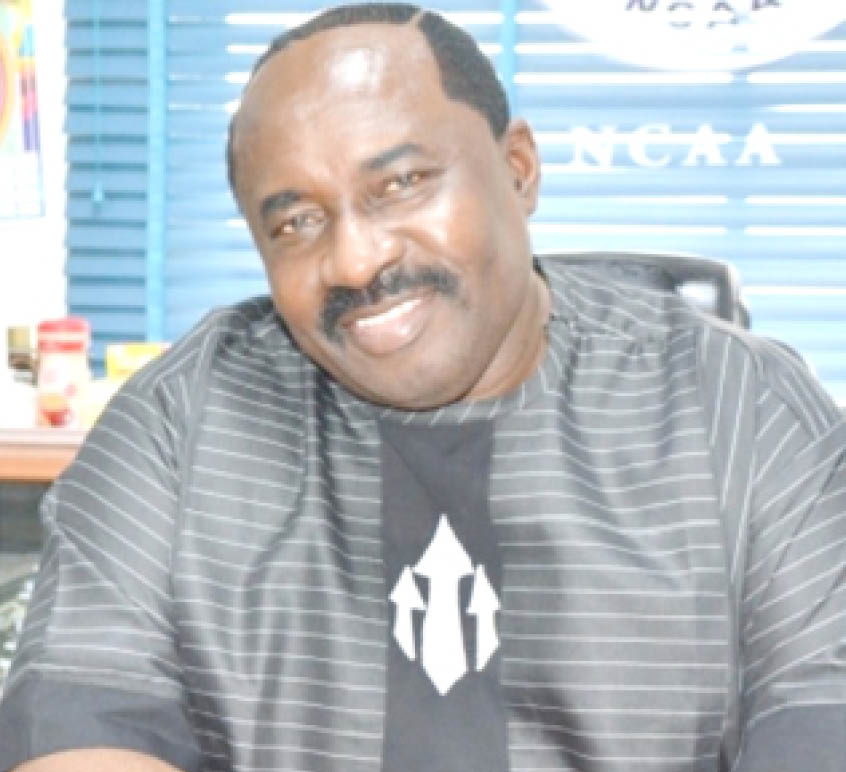The aviation industry is in dire shortage of manpower as dozens of technical staff, such as inspectors, engineers and training instructors are leaving the agencies in droves over poor remuneration and lack of motivation, Daily Trust Saturday can report.
The apex regulatory authority, the Nigeria Civil Aviation Authority (NCAA), has lost 15 inspectors in recent times to brain drain.
Also, the Nigerian College of Aviation Technology (NCAT), Zaria lost 20 technical staff in the last five years.
The NCAA is said to be the hardest hit with dozens of inspectors leaving the organisation for “greener pastures.”
Dollar crisis: FG urged to harness foreign remittances, informal markets
Illegal vigilante: Court orders FG to try Miyetti Allah leader
The Civil Aviation Authority is responsible for oversight and surveillance of the industry, enforcing regulations for all service providers and players in the industry.
For the airlines especially, the CAA is responsible for providing guidance for all aspects of their activities to ensure compliance with regulations.
It is in charge of issuance of licences to new and existing (upon expiration) airlines and ensures the airworthiness of aircraft flying over the Nigerian sky.
To effectively do this, the authority requires adequate technical manpower (inspectors) who are either pilots or engineers to carry out routine and regular checks on airlines.
With over 10 scheduled airlines and 22 non-scheduled, as well as over 30 prospective carriers currently undergoing the process of certification, it becomes a herculean task to meet the urgent needs of operators.
Our correspondent learnt that the NCAA is facing a severe shortage of technical manpower, which is stretching its capacity to meet the needs of operators as they have to queue before getting several approvals done.
Why inspectors are leaving
The japa syndrome hitting the NCAA is in two-folds. While some leave the country for greener pastures, majority of them leave for in-country pastures to airlines.
For instance, the inspectors who are either pilots or engineers, have the option of working for airlines who pay four times higher than what the NCAA pays.
The NCAA, owing to the existing civil service structure, cannot exceed a particular threshold as stipulated in the conditions of service for civil servants in Nigeria.
Our correspondent learnt that the salary of an average inspector is about N500,000 monthly, described as the lowest in the world.
Checks by our correspondent showed that the salary is five times higher in other countries.
In the United States, it is about $80,000 (N80m) per annum; $60,000 (N60m) per annum in the UK; €53,315 (N58.7m at N1,102/€) in Germany, among others.
Also, airlines in Nigeria pay three times higher than what any aviation agency pays technical staff like pilots and engineers.
Confirming this in a chat with our correspondent, the immediate past director-general, Civil Aviation, Captain Musa Nuhu, said the agency lost technical staff on a daily basis.
During a recent stakeholders’ meeting convened by the Minister of Aviation, Festus Keyamo, the director-general, who was recently suspended, confirmed losing 15 inspectors recently, saying, “The industry is expanding while we are shrinking.”
He said, “The ministry has intervened. It is really difficult and sometimes demoralising. By now we should be talking about another salary increase. We really have to talk to the unions and staff and make them understand. It is unfortunate.
“With the continued support of the Ministry of Aviation, there has been progress with the agencies of government involved, like the Salaries and Wages Commission, but not yet completed.
“My people (inspectors) have a problem with salaries. They are earning N500,000 and the airline pays N1.5m. It is unfortunate. That is the way it is and that is why we need to be removed from that salary structure.
“As at two years ago, Kenya was paying their inspectors $10,000 and they are going to increase it. You pay your people peanuts and you expect them to do magic.”
Our correspondent reports that the NCAA has different categories of inspectors, including airworthiness inspectors, flight operation inspectors, ground operation inspectors, cabin inspectors, aerodrome inspectors and airspace inspectors.
But there are only 100 airworthiness inspectors, which are the most critical in providing services to both the existing and incoming airlines, and more than 250 aircraft combined to work with.
A source in the NCAA who spoke with our correspondent on the condition of anonymity said most of the inspectors retired but they were retained, while dozens of them left in search of greener pastures.”
NCAT loses 20 technical staff
At the Nigerian College of Aviation Technology (NCAT), no fewer than 20 technical staff have left for greener pastures over poor pay.
A former rector of the college, Captain Alkali Modibbo, confirmed that agencies and airlines were in ongoing war of poaching technical staff.
He said, “We have the hitch of instructors. The airplanes would be there but we don’t have enough instructors to handle the training. This is so because of our remuneration. The college is a federal government institution and we are paid through the Integrated Payroll and Personnel Information System (IPPIS), which is a government policy, so you can’t unilaterally change it.
“If the federal government is not ready to increase salaries, there is nothing you can do on your own. But we are trying to see if we can increase allowances for our technical staff, especially flying instructors, engineering instructors, air traffic services and control so that we can retain them.
“We have lost more than 20 technical staff in the last five years to greener pastures. When your salaries and allowances don’t measure up with other colleagues, then people start to look for better places. We need more technical staff to train our students.
“The Nigerian Airspace Management Agency (NAMA) is suffering the same pain. According to the International Civil Aviation Organisation (ICAO), the NAMA is below standard with the air traffic controllers. So, the NAMA comes and grabs our air traffic controllers. The air traffic controllers run to NAMA because the salaries and allowances are four times better than what we can offer here.”
In the Nigerian Airspace Management Agency, described as the most safety critical agency managing the airspace, the Authority has continuously lamented the dearth of air traffic controllers.
The president of National Air Traffic Controllers Association (NATCA), Abayomi Agoro said, “We have acute manpower gaps and the agency undergoes some recruitment exercises to fill out the shortage, but they are yet to be trained.”
Commenting on the challenge, a former rector of the NCAT, Captain Samuel Caulcrick, recalled how he faced a similar challenge as the head of the foremost training institution.
If the wages are okay, some of them would stay. It is always an issue with the salaries and wages commission.
“We have always had that issue. It has always been difficult to retain these key personnel after training them. It happened to me. I left Zaria in 1980, but then, I had to finish my bond before they could allow me to join the Nigeria Airways to fly a bigger aeroplane,” he said.
Also speaking, a former general secretary of the National Union of Air Transport Employees (NUATE), Comrade Olayinka Abioye, said government must stop the japa syndrome in the industry.
He said, “As often said, a disgruntled worker is an accident waiting to happen. This being so, the management and unions (if any) must work together to reduce the number of professionals that may japa through improved welfare benefits.
“Can you imagine a situation where conditions of service, which ought to be reviewed every five years, are yet to be approved after all efforts put into getting them dusted and reviewed? What could be the cause of the avoidable delay? It is a known fact that all the agencies have fulfilled their respective official government obligations by submitting for scrutiny and perusal of their respective financial profiles so that they do not recourse to the federal government for assistance, yet they cannot get this simple thing done.”
The chairman of Air Peace, Mr Allen Onyema, recently called for the removal of the NCAA from the civil service structure to bring about greater efficiency in its operation.
“I am an advocate of taking the NCAA out of the civil service salary structure. The wages being paid by NCAA inspectors are very poor. As a matter of urgency and safety concern, their wage structure should be removed from that of civil service with immediate effect. The NCAA is losing staff, they cannot compete with the airlines in getting the right workforce,” he said.

 Join Daily Trust WhatsApp Community For Quick Access To News and Happenings Around You.
Join Daily Trust WhatsApp Community For Quick Access To News and Happenings Around You.


